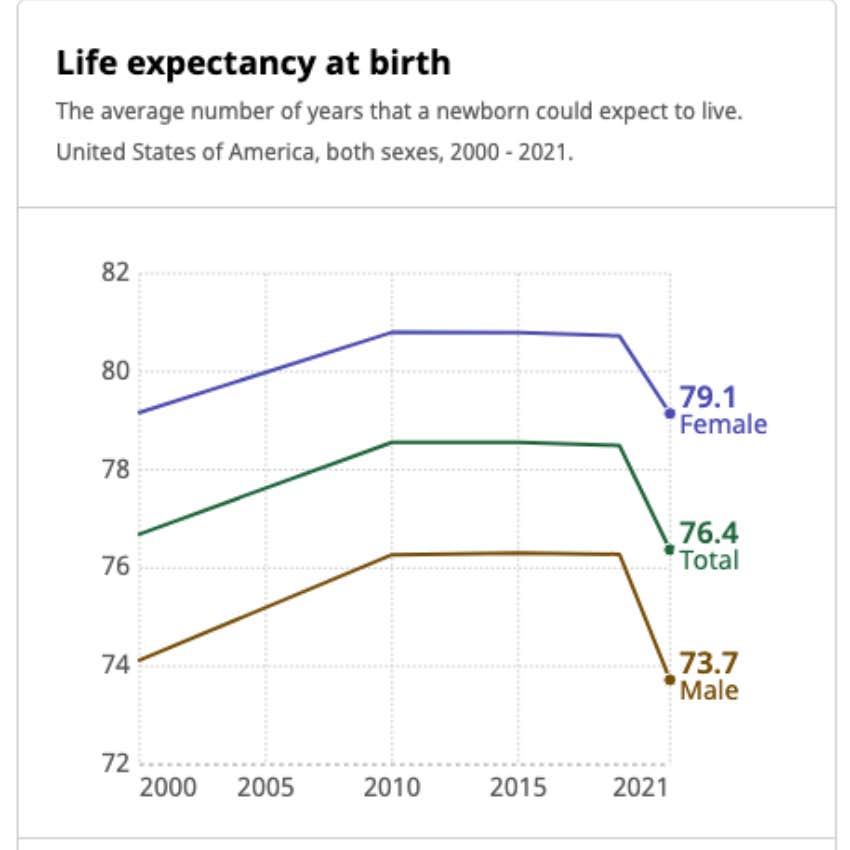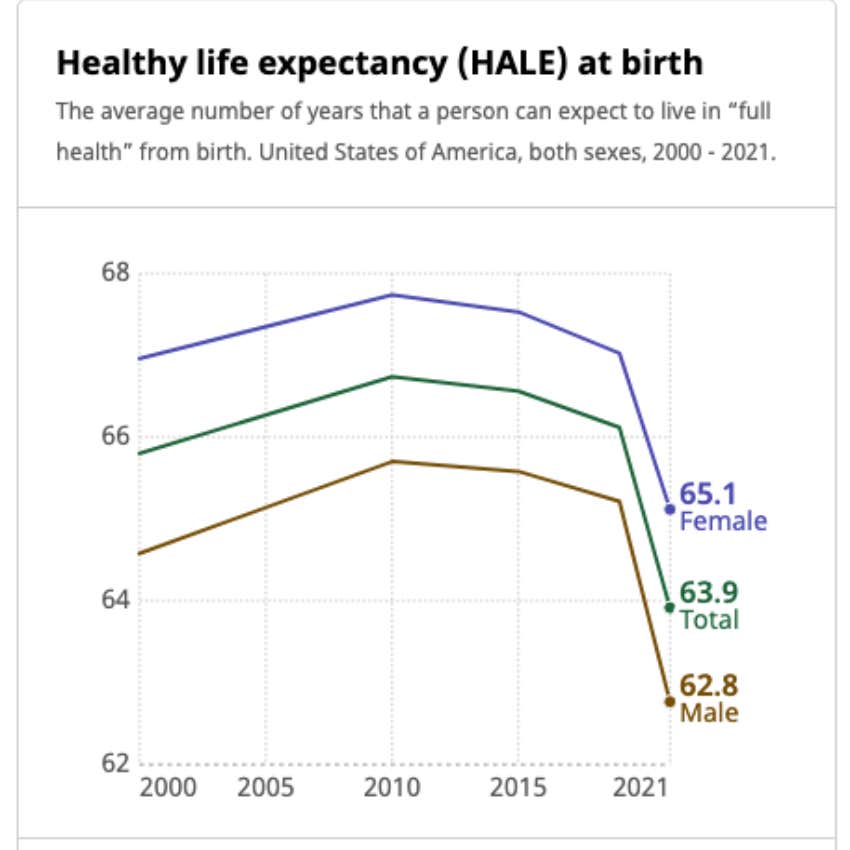CFO Warns Why Retiring At 65 Could Be A Huge Mistake
It comes down to the difference between life expectancy and healthy life expectancy.
 Andrii Nekrasov | Canva
Andrii Nekrasov | Canva As a long-time advocate of the Financial Independence Retire Early (“FIRE”) movement, I often polarize opinions.
Recent data from the World Health Organization, however, strongly tilts the argument towards retiring earlier rather than later.
Why? Take a look at the chart below — straight from the WHO.
 World Health Organization
World Health Organization
 World Health Organization
World Health Organization
No, I’m not even referring to the downward trend in life expectancy — which itself is very concerning. I’m referring to the downward trend in healthy life expectancy.
What's the difference between life expectancy and healthy life expectancy?
This is taken directly from WHO:
“Life expectancy refers to the number of years a person can expect to live. It is an important way of assessing the health of a population and is used to inform health policy and initiatives that impact everyday life.
“Life expectancy at birth is the average number of years that a newborn could expect to live, (the average age of death) while “Healthy life expectancy (HALE) at birth” is the average number of years that a person could expect to live in “full health” from birth (Author’s emphasis). This measurement takes into account years lived in less than full health due to disease and/or injury. — World Health Organisation
In short, healthy life expectancy is the total number of years you can expect to live “healthy”. The average American male has a healthy life expectancy of 62.8 years. The average American female has a healthy life expectancy of 65.1 years.
Yeah, you read that right.
If you are a male American planning for retirement at 65, then the statistics suggest that on average, you’re likely to retire already sick and die 12 years later, most of that time likely spent in ill health.
Women biologically tend to live longer than men. The stats for women are equally grim, with the average woman retiring at 65, right into sickness.
Hardly the golden years. Research studies found that although a correlation between early retirement and mortality risk was not found, on-time retirement was associated with a higher mortality risk.
This association was a contradiction of the healthy work effect, which reflected the consistent tendency of the actively employed to have a favorable mortality experience.
 Diego Montalvan | Pexels
Diego Montalvan | Pexels
If you’re not a fan of FIRE, there are still things we can do to help ourselves and ensure we stand the best possible chance of actually enjoying our retirement years.
Cut down on processed foods (as much as you can), exercise more, and maintain a healthy weight. It's a simple fix.
Researchers who studied the effects of retirement found that many people lose the roles, goals, and structure their jobs provided them when they stopped working.
Overall, the researchers concluded that retirement; early, on time, or late is something to be celebrated rather than feared.
Daniel Lin is a CFO with over 15 years of financial management experience. In his free time, he writes extensively on Medium and contributes to topics such as personal finance and retirement. Daniel is also an advocate for diabetes prevention.

